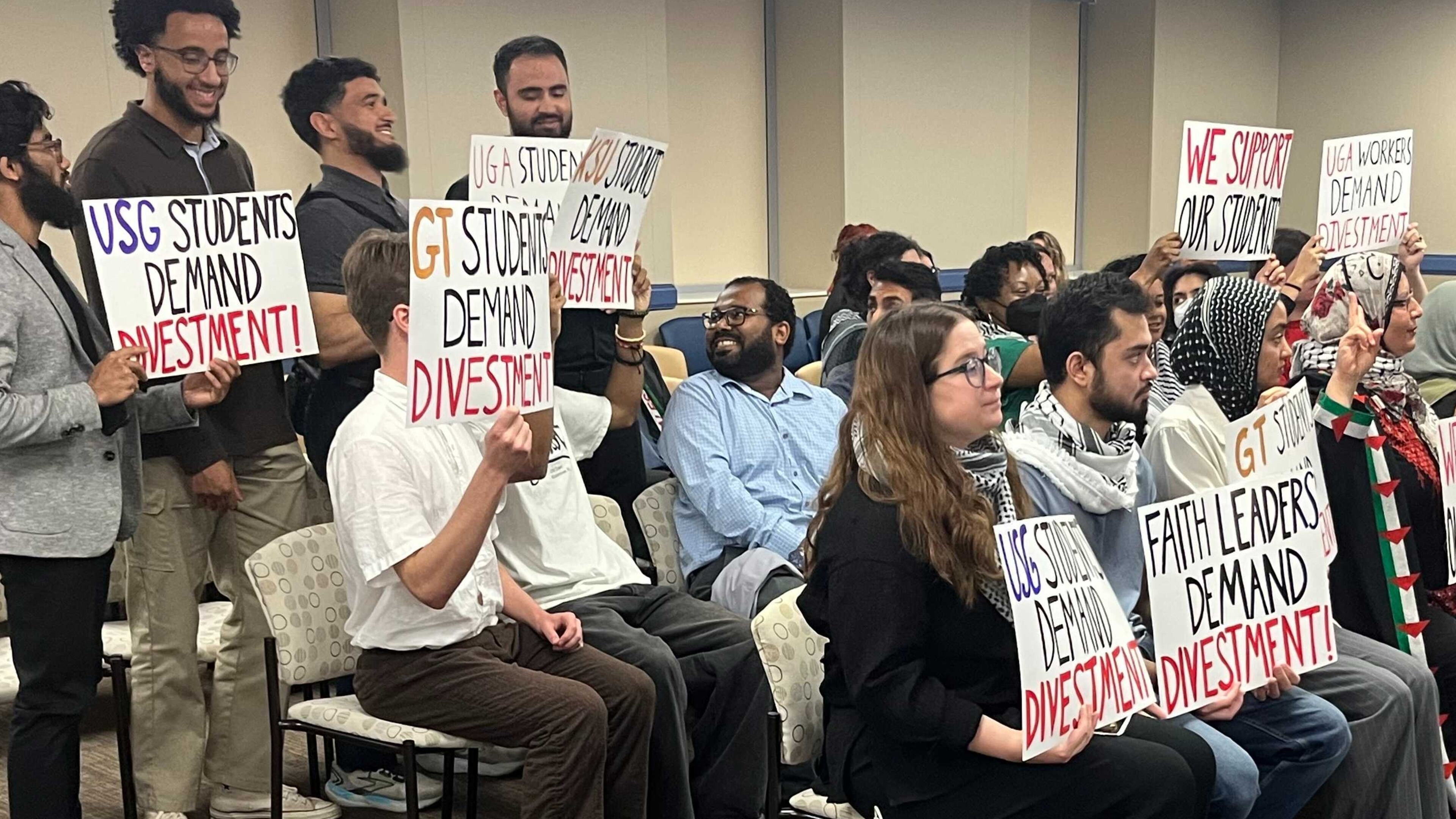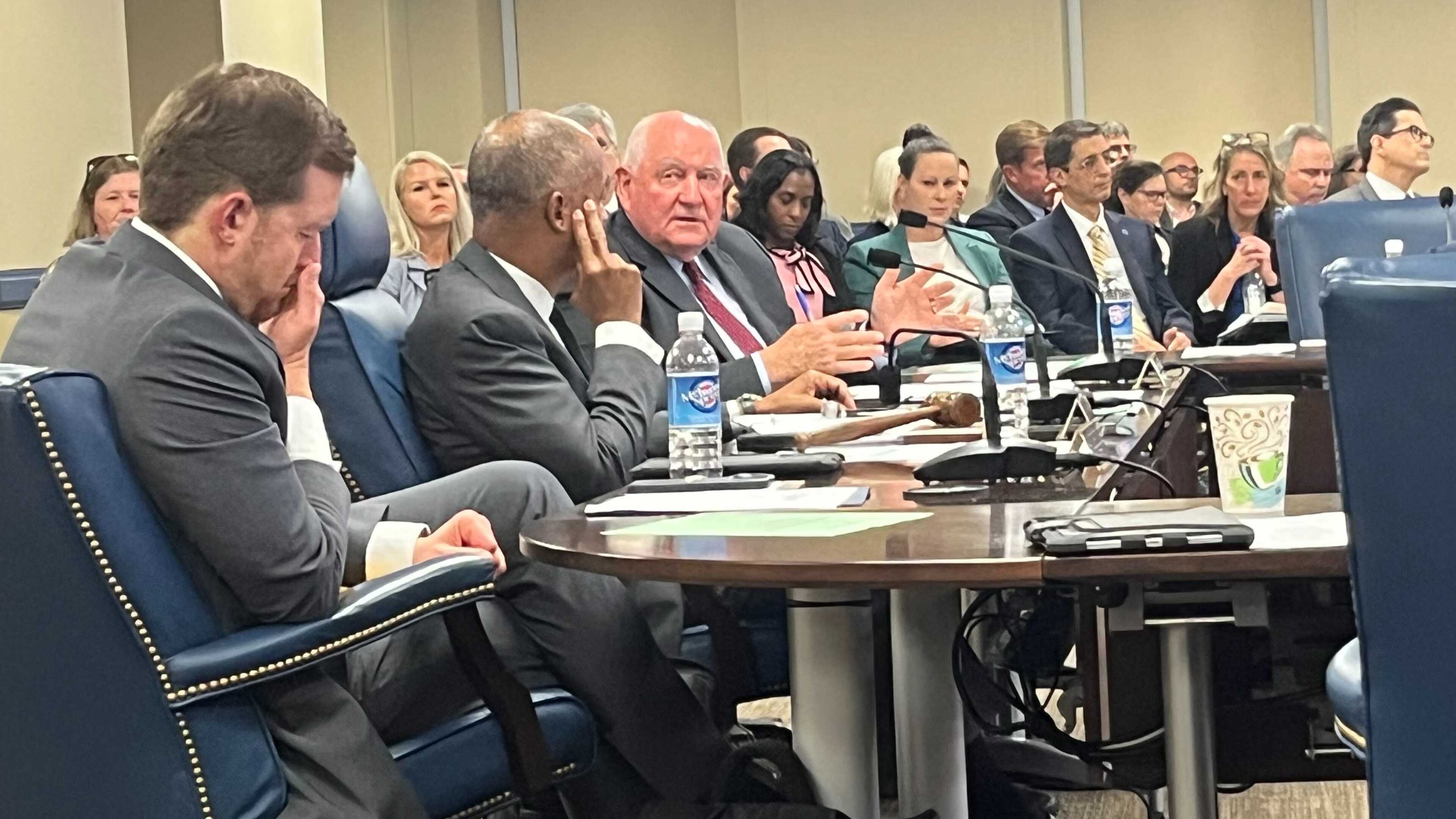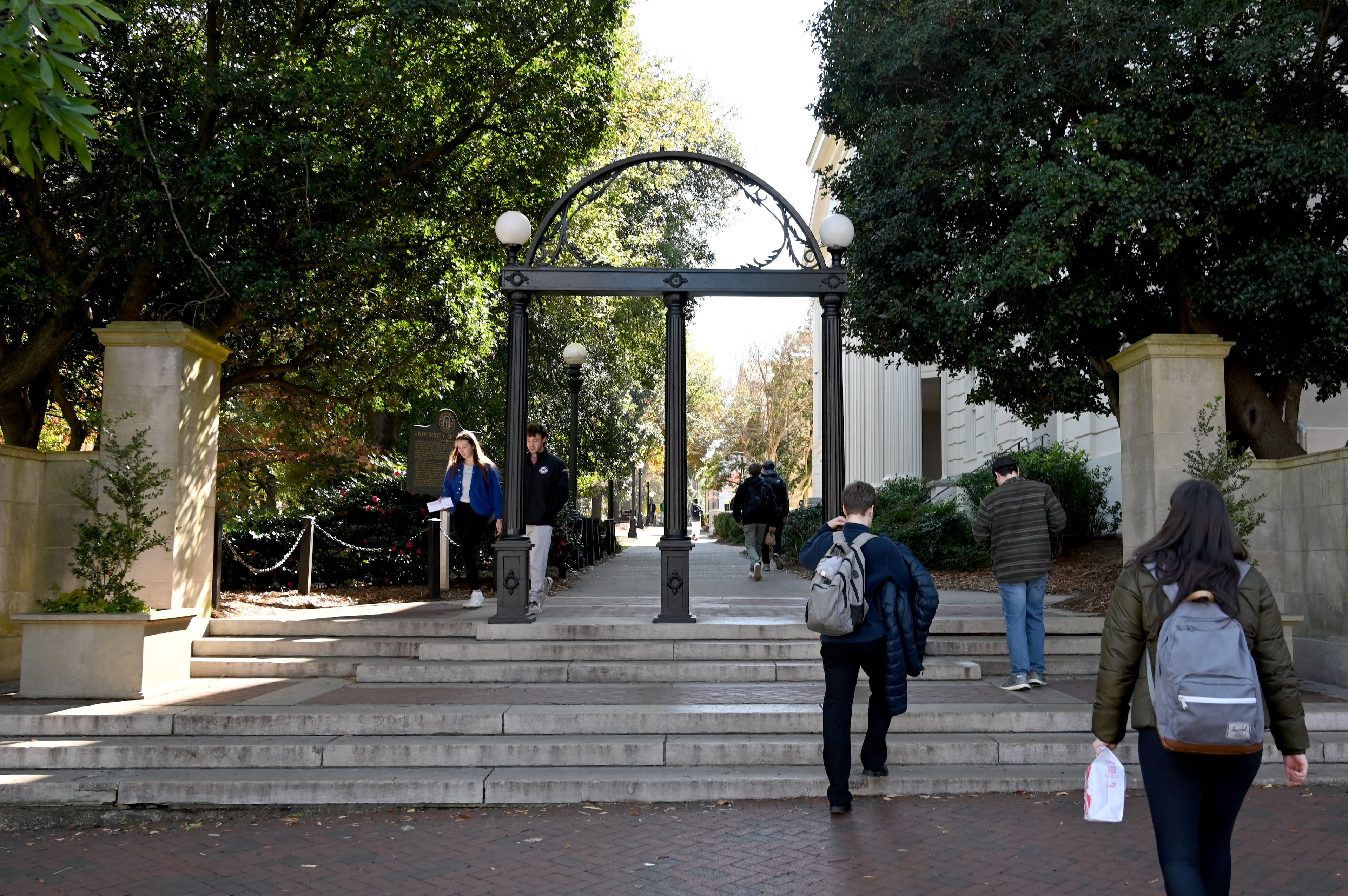Students make case for divestment at Georgia Board of Regents meeting

In late January, student demonstrators held a sit-in protest at a state Board of Regents meeting where they asked the University System of Georgia to sever financial ties with Israel.
On Thursday, that same group was given five minutes to make their case.
Standing in front of the regents and Chancellor Sonny Perdue during the body’s last meeting of the school year, Georgia Tech graduate Renee Alnoubani delivered her pitch.
“Our message today is one of peace and justice for all,” said Alnoubani, who graduated two weeks ago. “As a governing body for universities in Georgia, the USG has a great responsibility to uphold its mission and values and to act ethically.”

A pamphlet distributed by students described a humanitarian crisis in Gaza. That same pamphlet – which some regents didn’t open but Perdue and others looked through as Alnoubani spoke – said schools in the USG have relationships with multiple companies that provide military equipment to Israel, including Lockheed Martin and Northrop Grumman. Alnoubani asked the USG to create an “ethical investing committee” that would allow for more transparency of the companies its universities partner with.
Students in Georgia and across the country have made various demands of their schools since the war began in October 2023. The most common request is for universities to end investments in weapons makers, Israeli corporations or other companies that do business with the country.
Cutting those financial ties presents difficulties, according to experts. Many schools are invested in exchange-traded funds, which combine multiple companies into single assets that are traded like stocks; an investor cannot remove individual companies from an ETF. The money schools make from those investments is used to help some students pay for tuition. Similar investments are also in the Education Savings Accounts, known as 529s, that fund tuition and other costs for many students.
Alnoubani acknowledged that divestment is complex, saying that in Georgia it could be “tailored and specific” to the USG’s needs. “We need to ensure that our institutions are not partnering or working with companies that are directly involved in human rights violations,” Alnoubani said.
She cited the USG’s mission statement: “to create (knowledge) through research, transfer it through teaching, and apply it through service.” The body cannot live up to that mission, she said, “at the expense of thousands of lives.”
More than a dozen supporters were in the room as Alnoubani spoke, many holding signs demanding divestment.
In December, they made their first request via email to present to the board but said they did not receive a response. Alnoubani said she was surprised that they granted her permission to speak. And even though she was allotted only five minutes and was not allowed to include a PowerPoint presentation, she considered it a “major success.”
It felt like progress for some students, many of the whom were emotional after Alnoubani concluded. Regents gave her a round of applause and at least one shook her hand.
But there was no public discussion afterward and the board gave no indication it would take action.
“We’ll continue coming to these meetings whenever they are,” said Alnoubani after the meeting. “We’ll continue making this ask and hopefully work with them toward divestment.”



